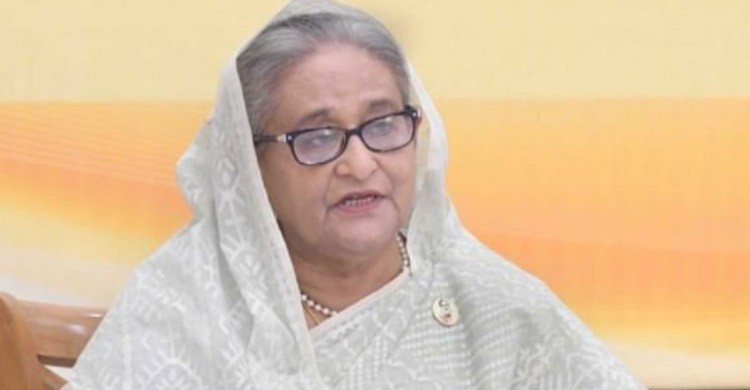PM urges joint Asia-Pacific action to meet water-related challenges
23 April 2022, 09:32 pm | Updated: 28 April 2025, 02:08 pm

Prime Minister Sheikh Hasina today urged the Asia-Pacific countries to combine forces to share good practices, knowledge and technologies to help address their water related common challenges.
She made the call in a video statement that was played in the Fourth Asia-Pacific Water Summit held at Kumamoto in Japan. She also said that a basin-wise approach is needed to manage the waters of trans-boundary rivers, reports UNB.
“We attach importance to regional or sub-regional cooperation, including for hydro-power generation and transmission,” she said.
Hasina said that the today's human beings are accountable to the future generations to deliver on their international commitments on water, including the water related SDGs.
“Our youths must be empowered so that they can become responsible actors for water inclusiveness, efficiency and sustainability,” she said.
The PM said that water is vital for life and it is fundamental for sustainable development and for promoting a culture of peace. “We need to ensure sound water management to ‘build back better’ from the ongoing Covid-19 pandemic,” she added.
She recalled that in 2016, she was a member of the UN High-level Panel on Water that adopted a ‘Call to Action’.
"The mid-term review of the Water Action Decade next year will provide us a platform in implementing the action agenda," she said adding that the Kumamoto Declaration will be a useful contribution to that process.
In Bangladesh, she said, the government has taken an inclusive, whole-of-society approach to water management where more than 85 per cent of its people have access to safe drinking water and improved sanitation facilities.
“We have almost ended open defecation. Our fight against water-borne diseases is a continuous effort. From next month, we shall administer 2.3 million cholera vaccines in the capital city,” she said.
The premier also said that Bangladesh is considered a “role model” in water related disaster management.
She mentioned that the investments in flood embankments, cyclone shelters, coastal polders, green belts, floating agriculture, river dredging, urban storm water drainage systems have increased Bangladesh’s resilience.
“We have benefited from developing early warning systems and community-based interventions. Our floodplain management aims at managing the seasonal variations in water availability,” she said.






















